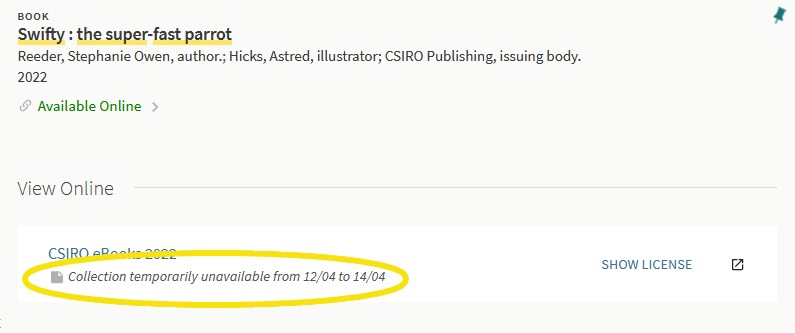General advice and suggested solutions for the most common access issues to the library's online collections.
The authentication system for accessing Library resources has changed.
To find out how this change will affect your access to Library online resources and reference management apps, please visit OpenAthens: our new authentication system.
Common access issues and how to solve them
Sometimes you'll see an error message about maximum users/licences/seats when accessing an article or a database. This means that the database has a limit on the number of RMIT users, who can use it simultaneously. If that limit is exceeded, you will not be able to access the resource. To find out if there are access restrictions on a database, look for a note underneath the resource link that will tell you how many users can access the database at the same time.
If you come across this issue, just try again later. If after several attempts you still can't get through, please contact Ask the Library.
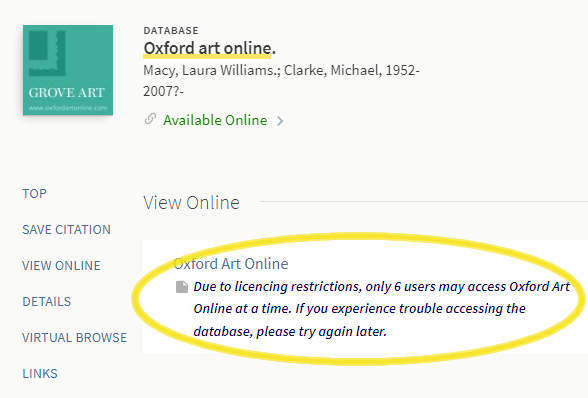
Some Proquest Ebook Central and EBSCOhost e-books have a limit on the number of RMIT users who can use them simultaneously. To find out how many copies of that e-book title the Library has available, look for the 'Concurrent user levels' information on the item's record.
If you come across this issue, just try again later. If you can't get through after several attempts, please contact Ask the Library.
Example from EBSCOHost
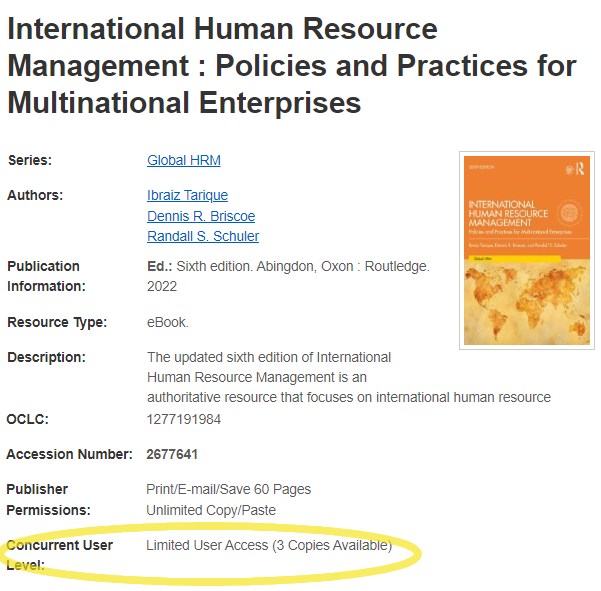
If the book is in use by the maximum number of readers, you will see a 'View eBook Full Text' message that states:
Sorry, this eBook is in use. A valid email address for your My EBSCOhost account is required to place a hold. Please try again later.
Example from ProQuest
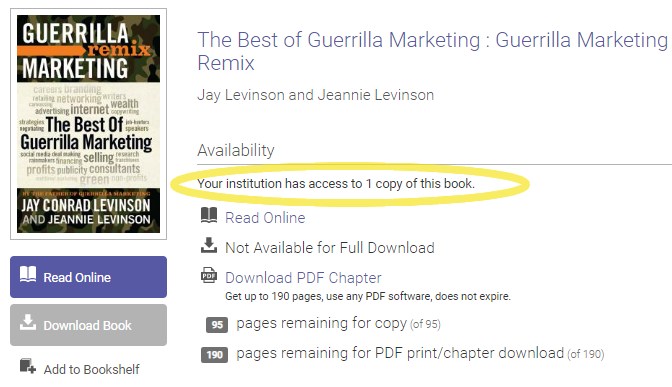
If you get a payment or a login request to access an article or an e-book in a database.
- Don’t pay! Full text resources in LibrarySearch are free to RMIT staff and students.
- You may be able to solve the problem by trying the following:
- Try other LibrarySearch links for that resource, if available.
- Check for messages about known issues. For example, there may be a note in the LibrarySearch record about the access issue.
- Search for the article/e-book directly in the database. To locate the database, use the Database search.
- Search for the article/e-book in Google Scholar.
If none of the above solutions work, please contact Ask the Library or request the resource from our Document Delivery Service.
Many articles, journals and e-books are available in more than one database. So, if you see more than one link, just select any of them to go to the resource.
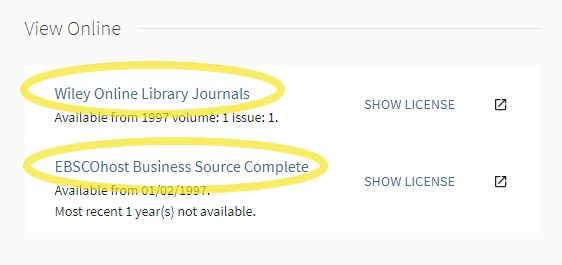
If you are unable to access full text articles from recent issues of an e-journal (e.g. most recent 6 months unavailable), there may be an embargo placed on them. Check under the database link for the date range details.
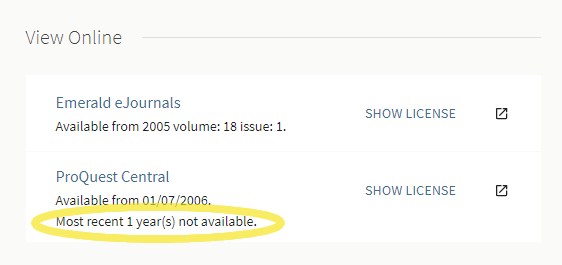
Check if there is another database the most recent issues are available on.
What's an embargo?
In the context of academic e-journals, an embargo is a specified time period (e.g. most recent 6 months) that access to full text journal articles is unavailable. The typical length of embargoes ranges from one week to two years.
Embargoes on e-journals are most common in aggregated databases such as ProQuest and EBSCOhost, as these full text database aggregators have negotiated rights to provide full text online coverage for a particular journal, but the publisher of the journal restricts the aggregator from providing the most recently published issue(s).
General advice
Cookies and/or pop-ups might be disabled
When accessing our online collections make sure that pop-up window blockers are disabled.
Your browser also needs to accept or enable cookies. If you are not sure how to enable cookies, go to Google's guide on How to Enable Cookies.
If you've enabled cookies but still have access issues, clear your browser's cache and try again.
Login not working
If you are having trouble logging in, you might need your password reset. Follow the advice on the ID and password page.
Full text is not available
Not all of our databases provide full text for every journal. Unfortunately, in some databases it may not be clear that we don’t subscribe to a full text version of a journal. And sometimes there is only partial access to full text, which can be confusing. If you find that you cannot access full text of an article, you can request a copy using the Document Delivery Services.
